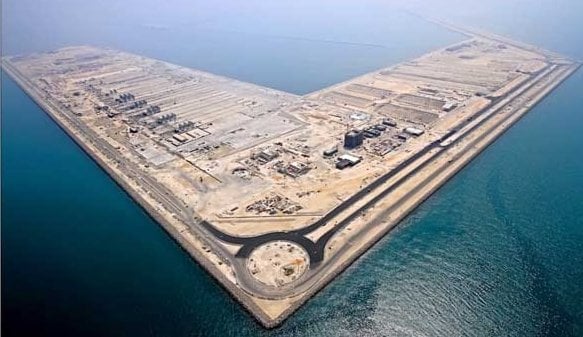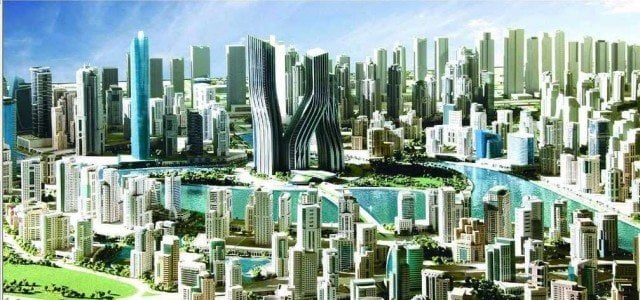Private sector plays very important role in the growth of economy and society alike. It provides basic requisite of investments and employment generation. It accelerates the pace of industrialization and joint venture in the country. It abridges gap between investments and savings. Moreover, it broadens horizon of business activity, merger & acquisition and macro-economic indicators.
Successive government of UAE has succeeded to implement effective business and investment friendly policies to encourage private sector in the country. Now its private sector is one of the main contributors of GDP %. In the near past, the UAE Cabinet’s decided to open up its market for companies fully owned by Gulf nationals and registered in the other five GCC countries, and giving them equal status. It is a great move in the right direction which would further strengthened its private sector by giving it level play field to compete with other regional countries. It would help cross border trade and investment once all the GCC states ratify it. With this, Gulf companies owned by GCC nationals will be treated like local companies not foreign investors anywhere in the region. Furthermore, it would widen the UAE private sector canvas to play a greater role in regional and global economy.
According to the figures of Abu Dhabi Chamber of Commerce and Industry (October, 2012), its private sector has gradually developed in the recent years to reach nearly a third of the emirate’s GDP due to which it has already surpassed the government sector. The figures showed the private sector would grow by around 6.4 percent in 2012 while the non-oil sector of the government is projected to expand by 5.5 percent. It was estimated at around Dh218 billion in 2011 and is forecast to climb to Dh232 billion in 2012. Moreover, the non-oil government sector stood at about Dh126 billion and could swell to nearly Dh133 billion this year.
The said report expected the hydrocarbon sector to grow by around 10.9 per cent to Dh385 billion in 2012 while the UAE’s oil output will likely remain at its highest level of 2.6 million bpd. Overall real GDP is projected to increase by nearly 8.5 percent to a record high of around Dh750 billion in 2012 to maintain the emirate’s position as the largest UAE economy, controlling over 60 per cent of the country’s GDP.
It is expected that services sectors would grow by around seven percent to reach Dh244 billion in 2012 from Dh228 billion in 2011 while non-oil productive sectors would increase by 4.5 percent to Dh161 billion from Dh154 billion.
UAE government most recently introduced new laws expand the manufacturing sector’s share from 16 to 25 per cent of GDP in the country which would further support the greater role of its private sector in the days to come. According to official data (2012), the UAE received nearly Dh13 billion in industrial investments in 2011. From around Dh101 billion at the end of 2010, total industrial investment surged to a record high of Dh114 billion at the end of 2011. It showed industrial investment increased by 12.8 percent in 2011 in which private sector played substantial role. Non-oil manufacturing units increased to more than 5,200 at the end of 2011 from around 4,960 at the end of 2010. The government hopes to expand industrial sector’s share of GDP from around 16 per cent at resent to 25 per cent in the coming years. Capital intensive and low labour projects would be given priority in the years to come.
The government data showed the sector included around 405 factories involved in food industries with investment of nearly Dh32.9 billion. There were also 290 ready-made garments factories, with a capital of around Dh977 million, 655 furniture units with investment of about 1.06 billion, 384 paper and printing production units with a combined capital of Dh2.28 billion and 857 chemicals factories investing a total Dh16.7 billion. It forecasts healthy prospects in the future.
Manufacturing sector Chemicals and plastic products have been remained the top two sectors for industrial investment. Food and value-added industries are also tremendous progress due to rigorous evolvement of private sector. During difficult times of regional political uncertainty and global economic recession, the industrial sector remained intact. Quality of the existing petrochemicals and aluminium industries in the UAE has kept the industrial sector away from all the possible losses as the global demand for such products were not affected during the period due to the financial crisis in the international markets.
To further strengthen the industrialization in the country, Abu Dhabi is planning to launch two new industrial cities in the Western Region on an area of 17 square kilometers, according to the Higher Corporation for Specialised Economic Zones (HCSEZ). One of the two cities will be built on an area of 14 square kilometres in Al Ruwais and will specialise in petrochemicals and building materials while the other will be built on an area of 2.5 square kilometres in Madinat Zayed and will specialise in oil and gas industries, food industries and logistic services. The two projects have been endorsed by Abu Dhabi Executive Council.
It is hoped that two proposed industrial cities would be value-addition to its strategic plans. The industrial sector in Abu Dhabi currently includes more than 1,200 industrial projects for the private sector. Of these, 800 projects are currently operating while the construction work will start in 400 other plants in the upcoming period. It clearly shows the sincere efforts of the Abu Dhabi to accelerate the growth of private sector in the country.According to the official data (2012), Abu Dhabi Ports Company (ADPC) planed a 417 square kilometre Khalifa Industrial Zone (Kizad) in Abu Dhabi’s Taweelah, the largest industrial zone in the region, with its phase one being launched with an investment of Dh26.5 billion in 2011 would speed up further industrialization in the UAE. Most recently, the Emirates Steel, a subsidiary of the Abu Dhabi Basic Industries Corporation, has announced to produce 3 million metric tones steel products per annum through a Dh9 billion expansion plan. Borouge, a provider of innovative, value creating plastics solutions, tripled its annual production capacity in Abu Dhabi to 2 million tonnes and an additional 2.5 million tonnes per year is scheduled for completion by the end of 2013 to create the world’s largest integrated polyolefins plant. The electronic sector in the UAE continues to maintain huge growth too. Moreover, Emirates Alum-inium, a joint venture between Dubai Aluminium Company Limited (Dubal) and Abu Dhabi’s Mubadala Development Company to produce 1.5 million tonnes of aluminium a year.
Recent estimates indicate that around 14 per cent of the UAE’s GDP is now being generated by the supply chain and logistics sector. According to a Frost & Sullivan report (October, 2012) UAE’s logistics market is expected to sustain a compound annual growth rate (CAGR) of 8 per cent to reach US$10 billion by 2015 from just US$6.35 billion in 2009. From 2007 to 2011, imports in the UAE sustained a CAGR of 12 per cent, while the export market grew by 33 per cent, or twice the rate of imports. The re-export market also expanded by 13 per cent during the same period, underlining the important role played by private sector.
According to the report increasing number of investors are taking advantage of the UAE’s advanced logistics infrastructure and strategic location. Key international players are also therefore keenly monitoring the UAE’s private sector capability to handle future demands.
Conclusion
Private sector is the engine of growth and value-addition in the onward march of socio-economy. It reduces budgetary and current account deficits. It increases exports volumes. It is one of the biggest sources of earning foreign exchanges. It generates employment opportunities. It starts healthy and productive competition in the country which is always good of the macro-economy.
UAE strategic plans have already recognized the importance of private sector. Every possible measure is being carried to facilitate private sector in the country. It is estimated that private sector would be game changer in the future.
Note: The series of articles are written on the eve of upcoming 41th National Day of the UAE, 2012



